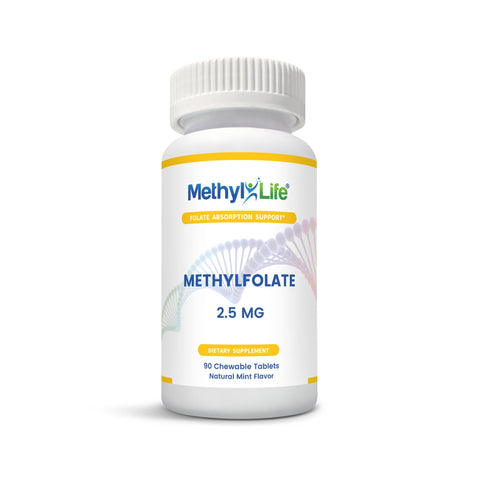What is folate deficiency?
Folic acid deficiency is actually folate deficiency. Folate (vitamin B9) is the naturally occurring form of vitamin B9 present in foods such as leafy greens, legumes, and citrus fruits. Folic acid is the synthetic form used in supplements and food fortification. Methylfolate is the bioidentical form of folate that is fully converted and bioavailable for immediate use in the body.
Folate is poorly stored in the body, and deficiency can develop within weeks if your diet lacks folate-rich foods. It can also occur if your body is unable to properly metabolize (break down) folic acid in foods or supplements.
Folate deficiency can lead to macrocytic anemia, a condition in which red blood cells are larger than normal and the body also lacks hemoglobin (the protein in red blood cells that carries oxygen).1 Low red blood cell count can deprive the tissues of the oxygen they need in order to function effectively, which can lead to fatigue and poor cognitive function.











